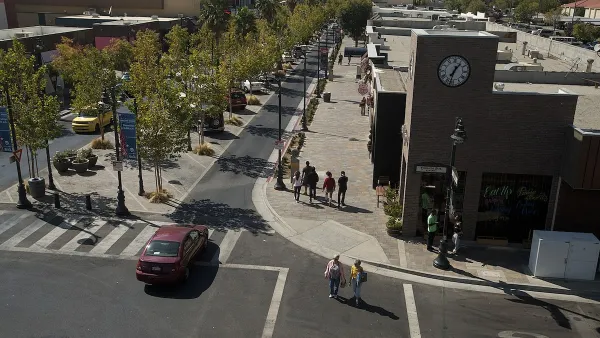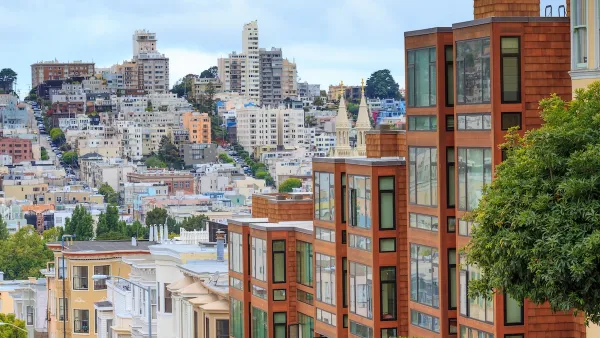Walkable Communities founder Dan Burden believes walkable communities contribute to greater happiness -- and that Silicon Valley has a thing or two to learn from Denmark.
"One measure of quality of life is the level of access we have to the things we value most - jobs, safe streets, affordable transportation and housing, and quality health care, schools and civic spaces such as parks and other gathering places. The ability to walk to many of these places from our homes or places ofemployment generally raises that quality-of-life index. When researchers look for places where people are happiest, it's often in communities where they can live near where they work, walk their children to school and shop at stores within walking or biking distance.
It's probably no coincidence that more than 20 years ago, Denmark set a vision to become one of the best places to walk anywhere. It took a long time to get there, but the Danes apparently are very happy with their results.
Silicon Valley can follow this example. It can leverage its standard of living to increase its walkability and improve its quality of life.
In Silicon Valley communities, most people don't live near where they work. In fact, many of the cutting-edge thinkers and innovators of the region have the worst commute times in the country.
Studies also indicate people are least happy when in their cars, largely because they cannot predict what will slow them down, or when. Thus the long commutes of Silicon Valley have gotten more and more costly, not only in terms of money and time, but also happiness.
Unfortunately, over the past several decades, we've designed our communities to move automobiles, not people. Too much is tied to the auto and is out of walking and bicycling range for residents. The happiest places in the world were designed to accommodate and support people, not their cars."
FULL STORY: Toward walkability - and happiness

Maui's Vacation Rental Debate Turns Ugly
Verbal attacks, misinformation campaigns and fistfights plague a high-stakes debate to convert thousands of vacation rentals into long-term housing.

Planetizen Federal Action Tracker
A weekly monitor of how Trump’s orders and actions are impacting planners and planning in America.

In Urban Planning, AI Prompting Could be the New Design Thinking
Creativity has long been key to great urban design. What if we see AI as our new creative partner?

King County Supportive Housing Program Offers Hope for Unhoused Residents
The county is taking a ‘Housing First’ approach that prioritizes getting people into housing, then offering wraparound supportive services.

Researchers Use AI to Get Clearer Picture of US Housing
Analysts are using artificial intelligence to supercharge their research by allowing them to comb through data faster. Though these AI tools can be error prone, they save time and housing researchers are optimistic about the future.

Making Shared Micromobility More Inclusive
Cities and shared mobility system operators can do more to include people with disabilities in planning and operations, per a new report.
Urban Design for Planners 1: Software Tools
This six-course series explores essential urban design concepts using open source software and equips planners with the tools they need to participate fully in the urban design process.
Planning for Universal Design
Learn the tools for implementing Universal Design in planning regulations.
planning NEXT
Appalachian Highlands Housing Partners
Mpact (founded as Rail~Volution)
City of Camden Redevelopment Agency
City of Astoria
City of Portland
City of Laramie





























